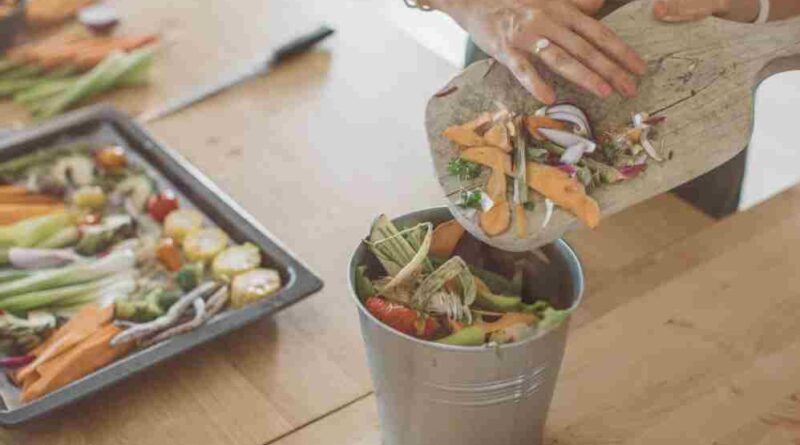Fuelling Ourselves and the Earth
On a warm Saturday morning, picture yourself at your favourite farmer’s market. You pass stands brimming with colourful produce as the light peeks through the striped canopy. You stop at a heap of rosy-cheeked carrots, breathe in the earthy scent of freshly harvested herbs, and experience a sense of connection to the farmer, the soil, and your own body. Choosing meals that both nourish us and have a minimal impact on the environment is the core of sustainable eating.
Sustainable eating is a lifeline for our future, not just a fad. Food systems are responsible for approximately one-third of global greenhouse gas emissions as climate change accelerates. In the meantime, we need to reconsider not just what we eat, but also how we consume, due to water constraint, biodiversity loss, and growing health concerns. The good news? Little decisions you make at the dinner plate might have a big effect.
Sustainable Eating: What Is It?
Choosing foods that minimise environmental effect (low carbon footprint, water use, land damage) is the fundamental component of sustainable eating.
- Encourage social justice (equal pay, ethical treatment of animals, and the welfare of the community).
- Increase individual well-being (nutrient-dense, minimally processed)
Instead of disparaging entire food groups, it encourages us to balance our plates with seasonal, locally grown, and minimally processed foods—all the while cutting down on waste and paying tribute to the people who grow our food.
The Significance of It on Three Levels
1. Planetary Health
Climate: 60% of greenhouse gas emissions from agriculture come from livestock, particularly beef and lamb. You can reduce your food-related carbon footprint by up to 25% by switching to plant-based proteins for simply one meal per week.
Water: One kilogramme of beef requires over 15,000 litres of water, compared to 4,000 litres for chicken and only 300 litres for pulses.
2. Economy & Community
Local growers: Purchasing from farms in your area supports smallholders, maintains money in your community, and frequently guarantees ethical labour practices.
Food security: Local food systems that are robust and diverse are better able to withstand supply-chain disruptions and weather shocks.
3. Nutrition for Personal Well-Being:
Consuming fruits, vegetables, whole grains, and legumes provides vitamins, minerals, and fibre, which helps prevent obesity, diabetes, and heart disease.
Flavour and connection: Eating seasonally exposes you to a greater range of flavours, textures, and culinary customs.
Easy Ways to Plan and Prepare for Sustainable Eating
Plan out three or four main meals each week. Create a shopping list to prevent impulsive purchases and food waste.
- Adopt “Meat-Smart”
- Try “Meatless Mondays” or substitute tofu, lentils, or beans for one dish of meat each day.
- Purchase locally and seasonally.
- Look for local co-ops, CSA boxes, or farmers’ markets. Fresher, tastier, and frequently less expensive produce is in season.
- Cut Down on Food Waste
- Properly store vegetables (e.g., wrap leafy greens in a moist cloth), freeze excess, and use leftovers for stir-fries and stocks.
- Select Proteins That Are Sustainable
Give preference to pasture-raised chicken, small-scale fisheries, and plant proteins (beans, chickpeas, and peas).Examine the labels.Check for certifications from the Marine Stewardship Council (MSC), Rainforest Alliance, Fairtrade, and Organic.
The Sustainable Plate—A Urgent Appeal
Every decision matters. Here’s how to get started right now:
- Choose one dish to make entirely plant-based.
- This weekend, go to a local market, talk to a farmer, and try something new.
- Examine your refrigerator and make a “use-up” supper out of leftovers.
A Look Ahead
Eating sustainably is a journey rather than a final goal. You will come across new ingredients, recipes, and communities as you learn, adjust, and share. Not only are you providing for yourself with each bite, but you are also helping the environment, encouraging producers, and setting an example for a better future for everybody.
Stay interested, be respectful to the environment and yourself, and return here for new community highlights, chef interviews, and seasonal guides. Every meal will be a step towards long-lasting transformation if we work together.
“We do not inherit the earth from our ancestors; we borrow it from our children.”
— Native American proverb
Ready to plate up some change? Let’s eat—and live—sustainably.
Disclaimer
The information and content shared on digitalgithub.com — including articles, blogs, news, guides, and other resources — is intended for general informational and educational purposes only. We do not guarantee the completeness, reliability, or suitability of any information. Always seek the guidance of a qualified professional before making decisions based on the information you read. Use this site at your own risk.

